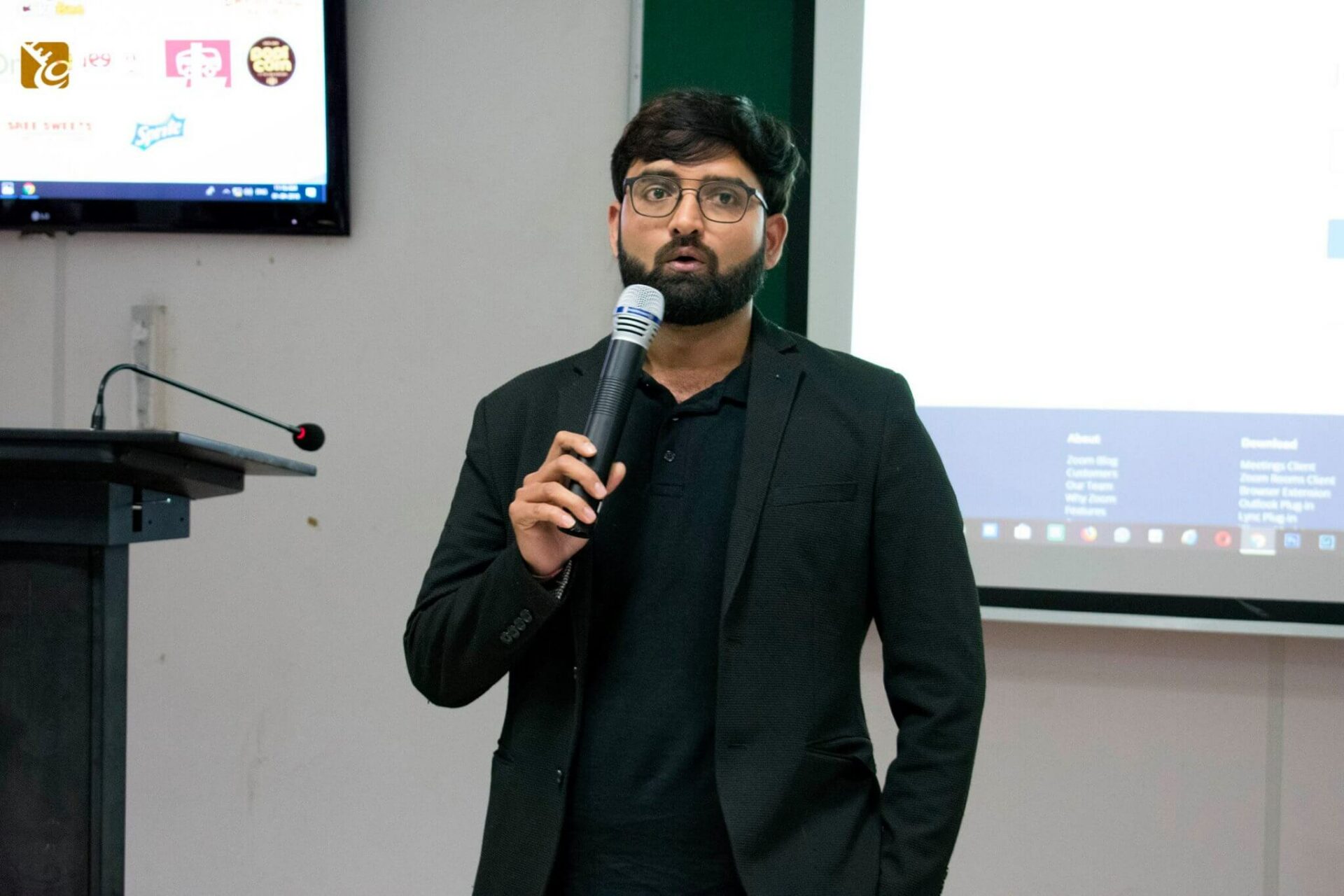

How did you develop the concept of Samaaro?
Over the years, we worked with some of the biggest names in the industry, including Facebook, Amazon, PayTM, and TCS, and helped them run effective marketing campaigns both nationally and internationally. We were thrilled to see our clients achieve great success, and our company was profitable and growing steadily.
Purnank Prakash, Co-founder & CEO: Then, in March 2020, the pandemic hit, and the event marketing industry underwent a major shift. On-ground marketing campaigns came to an abrupt halt, and our revenue was drastically affected. But we didn’t give up. We decided to pivot our focus and use our experience in the events and marketing industry to create a product that would revolutionize the way events were hosted and attended.
That’s when Samaaro was born – a virtual events platform that would overcome all physical barriers and could transfer on-ground activations to a digital arena, making it possible for attendees to participate in events from the comfort of their own homes. We were excited about the possibilities and worked tirelessly to bring our vision to life.
Within a day of launching the MVP, we received 50 inquiries from our existing clients, and we knew we were onto something big. We continued to improve and develop our platform, and our efforts paid off. Today, Samaaro is one of the leading all-in-one event technology platforms in the world, boasting a strong customer presence in over 30 countries and more than 2 million attendees from over 150 countries.
We are proud of what we have achieved and are excited about the future. Our product has undergone an incredible evolution, and we believe that Samaaro has the potential to change the way events are hosted and attended forever. Our journey hasn’t been without its challenges, but we’ve learned that with perseverance and determination, anything is possible. We’re excited to see what the future holds for Samaaro and the impact it will have on the events industry.
What significant challenges did you have to face while building Samaaro?
Purnank Prakash, Co-founder & CEO: Our startup, faced a major hit to our revenues prior to launch of Samaaro. Despite this setback, our team of 15 persevered with unwavering belief in our vision. We collectively decided to take salary cuts to keep the company afloat and worked tirelessly day and night to bring Samaaro to life.
Our faith in the Samaaro vision paid off in a big way as the platform soared to new heights. We were able to pay back the deducted salaries, expand our team, and even raise funding within a year of its launch.
However, as the pandemic subsided, we faced new challenges when the virtual events market began to slow down. Nevertheless, we saw this as an opportunity to evolve and innovate our product, transforming it into an all-in-one event technology platform suitable for all types of events.
Through our tireless efforts and dedication, we were able to release new product lines that will revolutionize the way people experience events.
At Samaaro, we understand that hiring the right team, expanding into new markets, and building the right culture are daily challenges that every startup must overcome.
However, we remain optimistic and confident in our ability to navigate these obstacles and continue to grow and innovate.
How did you market your product to the initial customers?
Purnank Prakash, Co-founder & CEO: Prior to launching Samaaro, we were already experts in helping brands run successful marketing campaigns using experiential technology. We built a vast network of event management companies who acted as our valuable channel partners. However, when the pandemic hit and physical events came to a halt, our customers & partners were also struggling to keep their businesses afloat.
Fortunately, Samaaro proved to be a game-changer for them, providing them with a much-needed ray of hope in the face of the pandemic. Our product allowed them to seamlessly host virtual events, and we received overwhelming validation from our these initial customers. Within a day of running a mail campaign among them, we received 50 demo requests – a clear indication that we were on the right track.
As word of mouth about Samaaro spread, our product started gaining traction, and we began to receive requests from event organizers around the world. The reviews we received from event organizers who used our product on platforms like Capterra, Sourceforge, G2, and Trustpilot were nothing short of amazing, boosting our visibility and credibility in the events industry.
Our content strategy also helped us rank for crucial keywords in the events industry, further enhancing our visibility and reach.
Throughout your startup journey, what insights have you gained or discovered?
- The importance of adaptability: Startups often need to be nimble and pivot quickly to adjust to changing market conditions or unexpected challenges. Running a startup can teach you the importance of being adaptable and open to change.
- The value of perseverance: Building a successful startup is a challenging and often a long-term endeavor. One may encounter setbacks and failures along the way, but if you persevere and stay committed to your vision, you can overcome those obstacles and build a successful business.
- The need for strong leadership skills: As a startup founder, you’ll likely be responsible for leading a team of people with diverse skills and backgrounds. Running a startup can teach you the importance of developing strong leadership skills, including effective communication, delegation, and problem-solving.
- The benefits of collaboration: Many startups rely on partnerships or collaborations with other companies or organizations to achieve their goals. Running a startup has taught us the importance of building strong relationships and working collaboratively with others to achieve shared objectives.
- The value of continuous learning: To stay ahead of the competition and keep your startup growing, you need to be constantly learning and adapting to new trends and technologies. Running a startup can teach you the importance of being a lifelong learner and continuously seeking out new knowledge and skills.
- The importance of customer feedback: Customer feedback is essential for any business, but it’s particularly critical for startups that are still developing and refining their products or services. Running a startup can teach you the importance of listening to and acting on customer feedback to improve your offerings and build a loyal customer base.
- The power of networking: Networking can be a valuable tool for startups looking to build relationships, find investors, and gain exposure for their brand. Running a startup can teach you the importance of networking and how to build strong connections within your industry or community.


